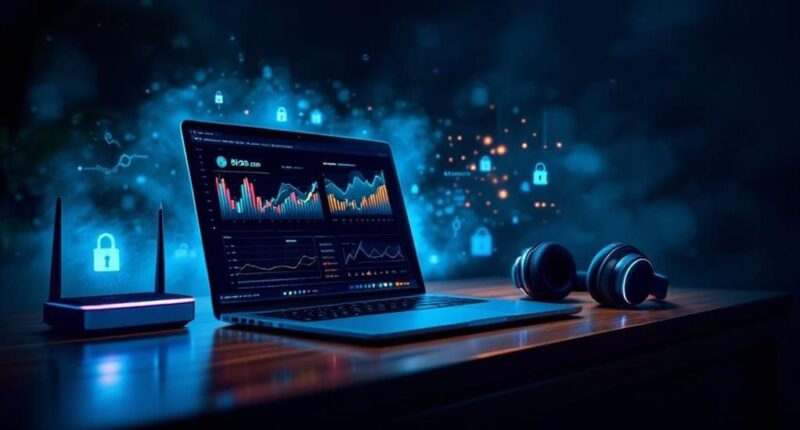Why would cryptocurrency traders need yet another layer of security when blockchain technology itself is already secure?
While blockchains may secure transactions once they’re recorded, the journey your data takes before reaching that digital ledger isn’t nearly as protected.
It’s like having a vault with three-foot steel walls but leaving the combination written on a sticky note in the lobby.
Blockchain security without personal protection is like Fort Knox with its access code taped to the front gate.
Cryptocurrency transactions naturally attract hackers like moths to a flame—except these moths wear hoodies and have advanced degrees in computer science.
When you trade crypto, you’re effectively waving a digital flag that says, “Hey, I’ve got valuable assets here!”
Your IP address becomes a bread crumb trail leading straight to your digital doorstep.
VPNs provide encryption that transforms your sensitive data into an unintelligible jumble.
Imagine your transaction information traveling through the internet as a secret agent in disguise rather than walking around in a t-shirt that reads “CRYPTO TRADER” in neon letters.
This encryption is particularly vital when using public Wi-Fi, which is about as secure as discussing your bank PIN at a crowded coffee shop.
VPNs significantly reduce risks associated with data exposure when conducting cryptocurrency activities online.
Beyond security, VPNs offer privacy advantages that blockchain alone cannot.
They mask your IP address, keeping your trading activity anonymous from ISPs, government agencies, and that nosy neighbor who somehow knows everything about your financial life.
This anonymity reduces your appeal as a target for scams and theft.
For traders facing geographical restrictions, VPNs act as digital passports.
They allow access to exchanges that might be unavailable in certain regions, opening doors to global trading opportunities that would otherwise remain locked.
However, VPNs aren’t magical crypto-security wands.
They’re just one tool in what should be a thorough security approach. A reputable VPN with a no-logs policy ensures your trading activity remains private even from the service provider itself.
Much like how implementing strong account security involves multiple layers of protection, using a VPN should be combined with other security practices for maximum effectiveness.
Even with the most robust VPN, clicking on phishing links or reusing passwords across platforms is like installing a state-of-the-art alarm system but leaving your keys in the front door.









